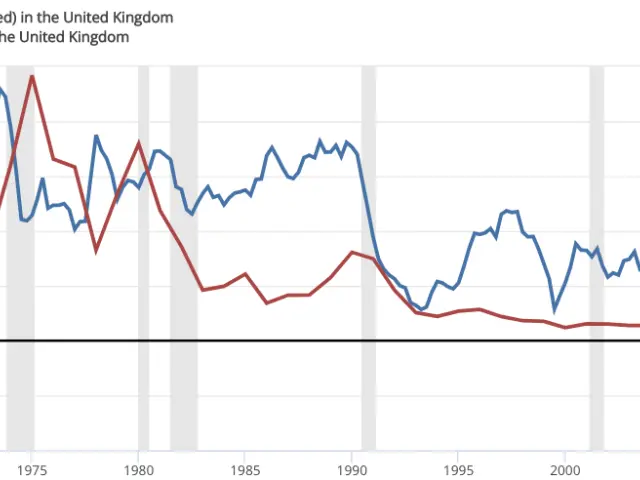Urgent Alert for Users of Gmail, Outlook, and VPN Services: Immediate Action Advised
Update, March 16, 2025: This article, first published on March 13, has been updated with further warning from the FBI regarding the ongoing Medusa ransomware attacks and the urgent advice issued to combat them.
It's a wild world out there in Cyberspace, folks. The Fed Bureau has issued a new alert about Medusa ransomware, which can come sneakin' through your mailbox courtesy of the good ol' USPS. But wait, there's more! Ghost hackers are havin' a field day, and these ambitious SOBs are aimin' for your Gmail account. The icing on the cake? A new Microsoft 365 attack that bypasses your email security. But fret not, dear reader – the FBI has some advice to keep you safe.
Partners in Crime: FBI and CISA Issue Warning Against Medusa Ransomware
Medusa ransomware, a cunning and relentless cybercriminal, has been on a rampage since June 2021. Targeting at least 300 victims in the critical infrastructure sector, it's one hell of a menace. Luckily, the FBI and the U.S. Cybersecurity and Infrastructure Security Agency (CISA) have teamed up to squash this threat with a new joint advisory.
The full report delves deep into the technicalities of Medusa's operations, but let's focus on the good stuff – the mitigation advice.
Brush Up Those Passwords, But Don't Change 'em Frequently
The FBI says you should require two-factor authentication (2FA) for all services, with a special emphasis on webmail like Gmail and Outlook, as well as VPNs. To boost online security, enable 2FA for as many accounts as possible, but don't obsess over password changes – research shows that such compulsion can actually weaken your security.
Save Those Backups – The Cloud Ain't Invincible
Keep multiple copies of sensitive data in a physically separate, secure location. The cloud ain't impervious, folks, and you don't want to end up in a pickle when your files disappear.
Updates Are Your Friend – Stay Current
Make sure your operating systems, software, and firmware are all patched and up to date. Attackers are always on the hunt for known vulnerabilities, so stay one step ahead of 'em.
Pay the Ransom? I Don't Think So
The FBI advises against paying any ransom, even though it might seem like the only solution. In many cases, victims who fork over the cash either don't receive the decryption keys or end up with corrupted ones. Paying isn't a guaranteed escape route, so weigh your options carefully.
Bonus Round: Two More Things You Shouldn't Miss
- Active Directory is a Hot Target: Hackers love going after Active Directory, the essential system that controls authentication and authorization. If attackers manage to compromise it, they can effectively seize control of your organization.
- Identity Systems: 90% of successful ransomware attacks rely on social engineering. Unfortunately, the FBI's mitigation recommendations don't suggest security awareness training as a primary defense, which could leave you vulnerable. So, never forget the importance of cybersecurity education in keeping yourself safe.
The FBI's latest warning advises against adopting the urgent payment of ransom for Medusa ransomware attacks, as victims may not receive the decryption keys, or receive corrupted ones instead.
The FBI's joint advisory with CISA on Medusa ransomware underlines the importance of implementing two-factor authentication (2FA) not only for webmail services like Gmail and Outlook, but also for VPNs, as part of their mitigation advice.
The ongoing Medusa ransomware attacks serve as a reminder that attackers can hang webmail accounts, outlook, and even VPN services, making it essential to implement robust security measures like 2FA for added protection.







